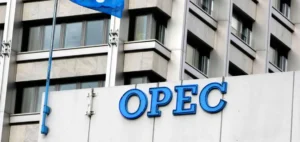The Nigerian subsidiary of Italian company Eni, Nigerian Agip Oil Company (Agip), obtained a favourable ruling in the dispute over oil block OPL 245, one of the most sensitive energy cases in Nigeria. On May 23, the Abuja Court of Appeal overturned a 2020 decision that had upheld a lawsuit filed by Malabu Oil & Gas, the controversial former holder of the licence.
The court ruled that the suit filed by Malabu in March 2017 exceeded the legal statute of limitations. The claims concerned actions taken more than five years earlier by a public official, specifically Dan Etete, former Nigerian Minister of Petroleum Resources. The court deemed the action inadmissible, citing a lack of consideration for Agip’s right to due process in the initial ruling.
A legal turning point in a longstanding dispute
This unanimous ruling confirms Agip’s legal position on OPL 245. It follows a series of similar victories for the company in the United Kingdom and Italy. The broader case surrounding the block also involved Shell, the Nigerian government and foreign jurisdictions in a protracted dispute over the allocation of the licence.
The legal clarification enables Agip to maintain its rights to the block without any ongoing judicial challenges. OPL 245 remains a strategic asset in the Nigerian oil sector, with significant estimated reserves. The licence is now part of the portfolio of Nigerian company Oando, which acquired Agip’s upstream assets in the country in 2024.
Significant production prospects
Oando plans to develop the block to reach a production plateau of 100,000 barrels of crude oil per day and 1.5 billion standard cubic feet of gas per day by 2029. The removal of legal uncertainty provides a more secure framework for these development plans.
The Malabu Oil & Gas lawsuit posed a legal risk to these plans, although the legitimacy of the claim had long been disputed. The May 23 ruling confirms that Nigerian courts now consider the matter time-barred, effectively ending this specific legal challenge.






















